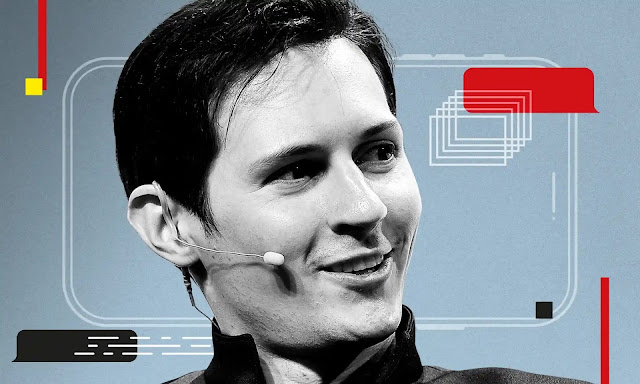But over the past year or so, Mark Zuckerberg’s empire has begun to look a little less invulnerable. Lawmakers have increasingly arrayed against it, and at brief moments—like the January 2021 mass exodus from WhatsApp, and a second one that followed a Facebook outage in October—the powerful network effects that drive Meta’s supremacy have seemed to shift briefly into reverse. Somehow Telegram, with its tiny staff, has become one of the greatest beneficiaries of those stumbles.
Whether this is a good thing for the world is another question, one muddied by how poorly understood Telegram is, especially in the US. The vast majority of journalists still refer to it as an “encrypted messaging app”. This description unnerves many security experts, who warn that, unlike Signal or WhatsApp, Telegram is not end-to-end encrypted by default; that users must go out of their way to turn on the app’s “secret chats” function (which few people actually do); and that only individual conversations, not those among groups, can be end-to-end encrypted. For the millions of people who use Telegram under repressive regimes, experts say, that confusion could be costly.
But the term “messaging app” is itself somewhat misleading, in ways that lead many to underestimate Telegram. Over the years, the app has become a deliberate hybrid of a messaging service and a social media platform—a rival not only to WhatsApp and Signal but also, increasingly, to Facebook itself.
Its blend of private messaging and public channels makes it a perfect organizing tool: ideal for evangelizing in public and then plotting in secret. I call it the one-two punch
, says Megan Squire, a computer science professor at Elon University in North Carolina who studies Telegram. You can do both propaganda and planning on the same app.
It’s been vital to pro-democracy protesters from Belarus to Hong Kong, but the global right seems to find Telegram particularly congenial. In Germany, a movement against Covid restrictions used the app to organize huge demonstrations in central Berlin in 2020, leading to the storming of parliament’s steps by a mob of extremists, in a sinister foreshadowing of January 6. (The stated aim of some protesters was to show Trump that they were ready for him to liberate Germany from a deep-state conspiracy.)
Darren LoucaidesI have always been somewhat skeptical of companies founded by Russians (including Revolut, which has grown quite popular here in Romania) – no matter how strongly they may deny connections to the Russian authorities, a repressive government could always find ways to coerce the company into complying with its demands, however illegitimate (same goes for Chinese companies). This extensive piece has only increased my apprehension; Durov’s admiration for Mark Zuckerberg, his cult-like status inside the company and outward secrecy, their (fortunately unsuccessful) forays into cryptocurrencies and almost complete lack of a sustainable business model, are all reasons to remain cautious of Telegram and its future. I personally like Telegram more than WhatsApp and similar messaging apps; it has a nicer interface and feels more well-built – probably owing to the Durov brothers’ background in mathematics and engineering – but everything else surrounding it feels shady.
currently behind a paywall, but there are ways around that.

Durov, 37, has become one of the world’s most powerful and meticulously enigmatic tech moguls. After years of professed nomadism, he and Telegram are now officially based in the United Arab Emirates. A recent Instagram post shows Durov sitting cross-legged, shirtless and chiseled, on a rooftop overlooking the Dubai skyline. When he isn’t showing off his impressive torso, Durov invariably wears black, which the press rarely fails to describe as an homage to Neo from The Matrix. He interacts with the public almost entirely via his Telegram channel, where he plays philosopher king and CEO on matters of free speech, system architecture, and the virtues of eating an all-fish diet, abstaining from alcohol, and sleeping alone. Inside Telegram, Campo says, the company’s inner circle of mainly Russian developers look upon their leader “almost like a divine figure”, addressing their boss with the formal “you” and never contradicting him. In the words of a former employee named Anton Rozenberg: “It’s a sect”.
As sects go, Telegram is a remarkably closed one. Despite Campo's recommendations, Durov has neither given an interview nor spoken in public for years, and employees are also, for the most part, incredibly secretive.
On top of that, it continues to puzzle me – and many others – how Telegram managed to convince so many that it’s a secure messaging app, despite not being end-to-end encrypted by default. It might simply reflect how poorly the public understands encryption and its implications, but it can nevertheless have unpleasant consequences for those assuming their conversations are private when in fact they’re anything but. Recently, a Russian Wikipedia editor was arrested in Belarus for “distributing fake anti-Russian information” after being doxxed on Telegram, which speaks to Telegram’s lax protections in group chats. I fully expect more similar stories, considering how popular the app is in the region, including in Ukraine.
Post a Comment